第25章 CHAPTER 2(10)
After what has been said respecting the obligation of obedience, it isalmost superfluous to say anything concerning the more special point includedin the general one -- a woman's right to her own property; for I need nothope that this treatise can make any impression upon those who need anythingto convince them that a woman's inheritance or gains ought to be as muchher own after marriage as before. The rule is simple: whatever would be thehusband's or wife's if they were not married, should be under their exclusivecontrol during marriage; which need not interfere with the power to tie upproperty by settlement, in order to preserve it for children. Some peopleare sentimentally shocked at the idea of a separate interest in money mattersas inconsistent with the ideal fusion of two lives into one. For my own part,I am one of the strongest supporters of community of goods, when resultingfrom an entire unity of feeling in the owners, which makes all things commonbetween them. But I have no relish for a community of goods resting on thedoctrine, that what is mine is yours, but what is yours is not mine; andI should prefer to decline entering into such a compact with anyone, thoughI were myself the person to profit by it.
This particular injustice and oppression to women, which is, to commonapprehensions, more obvious than all the rest, admits of remedy without interferingwith any other mischiefs: and there can belittle doubt that it will be oneof the earliest remedied. Already, in many of the new and several of theold States of the American Confederation, provisions have been inserted evenin the written Constitutions, securing to women equality of rights in thisrespect: and thereby improving materially the position, in the marriage relation,of those women at least who have property, by leaving them one instrumentof power which they have not signed away; and preventing also the scandalousabuse of the marriage institution, which is perpetrated when a man entrapsa girl into marrying him without a settlement, for the sole purpose of gettingpossession of her money. When the support of the family depends, not on property,but on earnings, the common arrangement, by which the man earns the incomeand the wife superintends the domestic expenditure, seems to me in generalthe most suitable division of labour between the two persons. If, in additionto the physical suffering of bearing children, and the whole responsibilityof their care and education in early years, the wife undertakes the carefuland economical application of the husband's earnings to the general comfortof the family; she takes not only her fair share, but usually the largershare, of the bodily and mental exertion required by their joint existence.
If she undertakes any additional portion, it seldom relieves her from this,but only prevents her from performing it properly. The care which she isherself disabled from taking of the children and the household, nobody elsetakes; those of the children who do not die, grow up as they best can, andthe management of the household is likely to be so bad, as even in pointof economy to be a great drawback from the value of the wife's earnings.
In another wise just state of things, it is not, therefore, I think, a desirablecustom, that the wife should contribute by her labour to the income of thefamily. In an unjust state of things, her doing so may be useful to her,by making her of more value in the eyes of the man who is legally her master;but, on the other hand, it enables him still farther to abuse his power,by forcing her to work, and leaving the support of the family to her exertions,while he spends most of his time in drinking and idleness. The power of earningis essential to the dignity of a woman, if she has not independent property.
But if marriage were an equal contract, not implying the obligation of obedience;if the connexion were no longer enforced to the oppression of those to whomit is purely a mischief, but a separation, on just terms (I do not now speakof a divorce), could be obtained by any woman who was morally entitled toit; and if she would then find all honourable employments as freely opento her as to men; it would not be necessary for her protection, that duringmarriage she should make this particular use of her faculties. Like a manwhen he chooses a profession, so, when a woman marries, it may in generalbe understood that she makes choice of the management of a household, andthe bringing up of a family, as the first call upon her exertions, duringas many years of her life as may be required for the purpose; and that sherenounces, not all other objects and occupations, but all which are not consistentwith the requirements of this. The actual exercise, in a habitual or systematicmanner, of outdoor occupations, or such as cannot be carried on at home,would by this principle be practically interdicted to the greater numberof married women. But the utmost latitude ought to exist for the adaptationof general rules to individual suitabilities; and there ought to be nothingto prevent faculties exceptionally adapted to any other pursuit, from obeyingtheir vocation notwithstanding marriage: due provision being made for supplyingotherwise any falling-short which might become inevitable, in her full performanceof the ordinary functions of mistress of a family. These things, if onceopinion were rightly directed on the subject, might with perfect safety beleft to be regulated by opinion, without any interference of law.